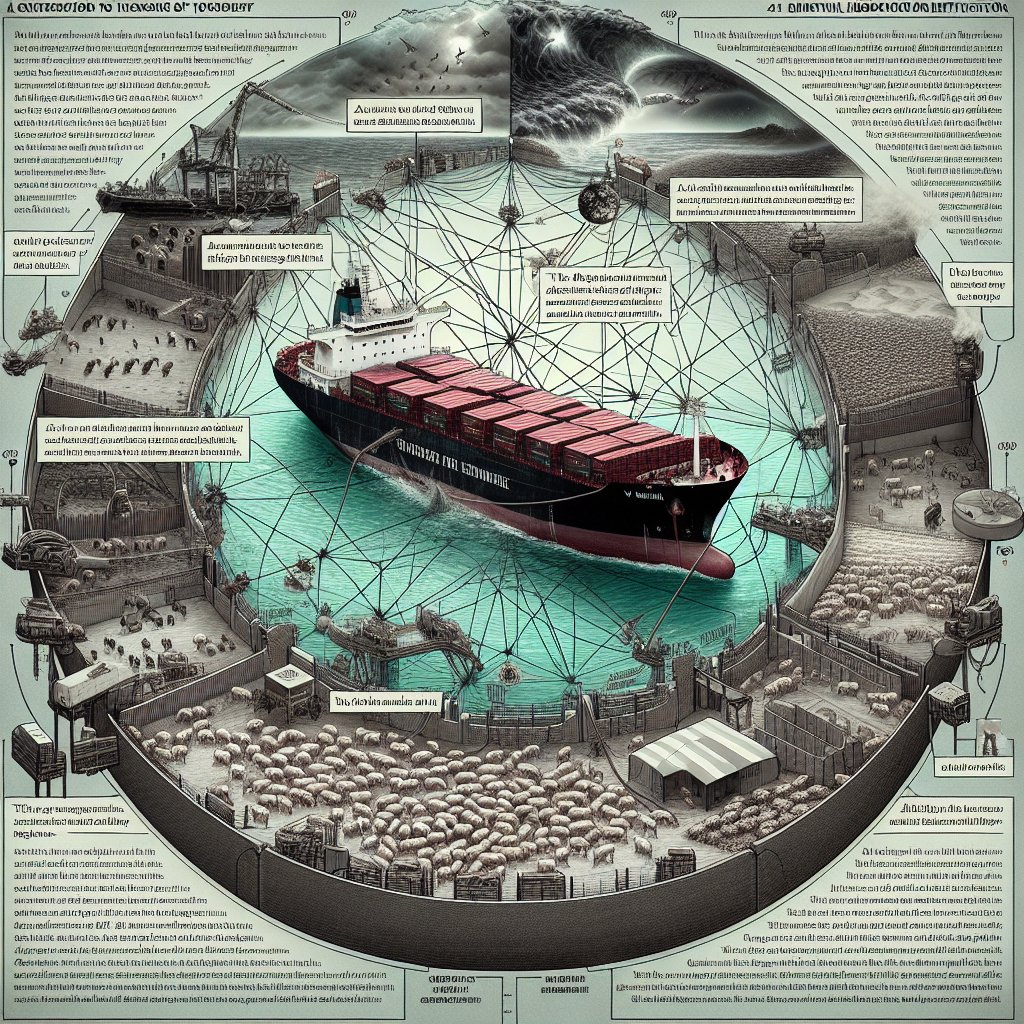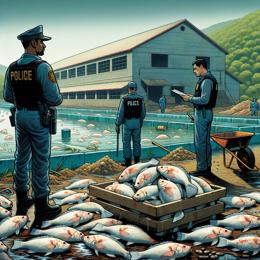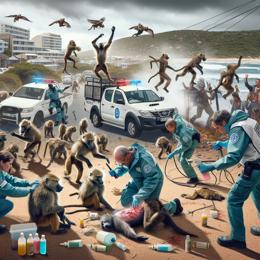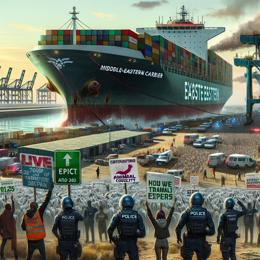Image created by AI
Animal Welfare Advocates Sound Alarm Over Next Livestock Carrier's Perilous Journey Around Cape of Good Hope
In the wake of incessant contention surrounding the sea-borne livestock trade, a fresh wave of consternation has crash-landed on the shores of animal welfare discourse as the MV Bahijah embarks on an arduous journey around the Cape of Good Hope, en route from Australia to Israel. The vessel, laden with 16,000 cattle and sheep, sparks a renewed outcry from activists and organizations alike, in an industry marred by past tragedies and continued scrutiny.
The vessel's odyssey was not originally charted to curl around the African cape, but the hazardous Red Sea, plagued by Houthi insurgence near Yemen, has forbidden the carrier's passage—a diversion that bites hard into ethical concerns over lengthy sea transports.
Argentina-based Australian advocacy group, Animals Australia, vehemently decried the voyage's genesis on the 5th of January 2024 and bemoaned the animals' subsequent ordeal. Initial resistance from Australia's Department of Agriculture, Fisheries and Forestry gestated amidst anxiety concerning the animal's health within the voyage's exorbitant span. This echoes a wound deeper than policy—the harrowing axiom that animals will cower under the duel of commerce and welfare.
Friction flares further as details stitch a grim tapestry of suffering. After weeks at sea, instead of relief, confinement ensued within quarantine feedlots. The ultimate decision—a rerouted fate, knuckled under the company's determination to re-export these living commodities.
The episode plucks at memories of the Al Kuwait, whose recent docking unleashed distressing visual testimony of livestock mired in their excrements, some perishing, others euthanized—tangible proof of the inherent infractions associated with prolonged live exports.
As the MV Bahijah sidesteps South African ports, there lies minimal jurisdiction for intervention. South Africa's National Council of SPCAs expressed unease, yet perceptible hands are tied without power to act beyond territorial seas—a stark admission from spokesperson Keshvi Nair.
This unfolding narratives punctures the heart of an enduring discourse: the welfare of creatures caught in humanity’s global trade web. The forecasted 34-day journey of the MV Bahijah—nearly double its initial route—is not merely a statistic. It is a lingering voyage with the potential to leave a wake of despair, questioning the ethical calculus of economic gain over sentient suffering. As the Al Kuwait anchors in Iraq, the MV Bahijah’s silent traverse across the cape brandishes a sempiternal question—when will animal welfare not be the adjunct, but the anthem of the live export saga?










